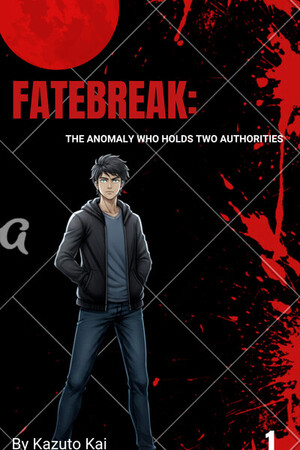Chapter 13:
Currency, Clothes, and a City of Clouds
Vagrants of Aeridor Valeria
"This is truly another realm!" the Nihonese man professed, his eyes alight as they swept across the impossible vista with uncontained awe.
"It defies belief," he then whispered, the breathless wonder in his tone meant more for his own ears than for ours. "I must be the most fortunate soul in existence. One instant, I was utterly convinced of my own demise, and the next… I find myself in a world woven from magic."
The phrase ‘convinced of my own demise’ resonated deeply within me. His experience mirrored my own; he too must have had a harrowing encounter with mortality just moments before our summoning. It was the only logical explanation for the dark, wet patches of blood that stained his clothing. The woman at his side, her face a mask of grim severity, likely harbored a comparable story.
The old man, however, presented a different puzzle. Only a specific category of captive would receive such treatment. His confinement in shackles attached to a human trolley implied he had been in transit when summoned—perhaps on his final journey to a place of execution. The possibility that he was a maniacal murderer put me on edge, yet I restrained myself from forming a hasty conclusion based solely on his appearance. I would first need to ascertain the true nature of the man behind the chains.
"Can you tell me precisely where we are?" the Nihonese man inquired, his awe giving way to a burning curiosity. "If this world has magic, does it follow that creatures like demi-humans and magical beasts also exist?"
I cast a sideways glance and noted that while the old man and the woman remained silent, their expressions conveyed an equal thirst for the answer.
"To be honest, I'm not entirely certain myself," I confessed. "I was released from an underground cell only an hour ago, after weeks of imprisonment. What little I’ve gathered is that we were brought here against our will, designated as candidates for the title of 'hero'."
"Hero candidates?" His eyes flared with sudden brilliance. "Is there a demon lord to fight? Does this mean we get cheat-level abilities or some kind of superpower?" The very concept of being a 'hero' seemed to energize him, the prospect of this fantastical translocation thrilling him far more than it perplexed him.
"Something to that effect was mentioned," I replied, promptly extinguishing his burgeoning excitement. "But you can forget all about it. It appears the three of you, like me, missed the audience with the so-called Goddess to receive her blessing. That's the reason they've cast us aside. In their eyes, we are nothing more than ordinary people, bereft of any special talents—just another collection of failed heroes."
"What? No cheat abilities? That can't be possible!" he stammered, his elation vanishing as if it had never been. "Isn't there a way for them to check our status or appraise our skills? They're simply going to abandon us? Without any real explanation? No knowledge of this world, no money?" His questions tumbled out in a frantic cascade. "We were supposed to be candidates to become heroes, weren't we?"
"Easy there, man," I urged, holding up a hand. "I don't have a clue about any 'status' or 'appraisal,' but the King has already written us off as failures. And let's be real, you don't exactly fit the heroic mold. You look more like a fugitive." I then nodded toward the woman. "Especially you, miss. You went so far as to assault the King."
"Don't expect any kind of preferential treatment," I continued. "You should all count yourselves lucky to be dismissed. I 'accidentally' offended the King the very moment I arrived, and it bought me several weeks in a dungeon. It's a genuine miracle he chose to overlook your transgression," I added. "Be grateful you aren't facing an executioner."
My dose of reality left the Nihonese man looking utterly crestfallen. The woman’s only response was a deepened scowl, her lips compressing into a severe, thin line. The old man continued to gaze at the surrounding scenery, seemingly adrift in a world of his own. All the while, the spectral, floating woman trailed us with her customary silent detachment, as impassive as ever.
I, on the other hand, was rather pleased with this outcome. Had my situation in that dungeon become any more heated, I had been fully prepared to orchestrate my own escape by force.
As we proceeded, a pall of gloom settled over the Nihonese man's features. Our path led us past a magnificent fountain situated on the cathedral grounds, where he and the woman paused their walk to cleanse the blood from their hands and faces. The envoy guiding us appeared to have a comment on his lips but ultimately decided to remain silent.
A brief cable car journey ferried us to the main island. It was then that a new thought struck me. My companions had been compliant thus far, but there was no telling how they might react if subjected to the same derision I had faced from the military personnel. The old man did not seem the type to possess a great reserve of patience, and while the Nihonese man and the dark-haired woman might endure it, a confrontation felt almost certain. Our bizarre, ragged state would inevitably invite it. The woman, in her flimsy negligee, would undoubtedly be the focus of the most unwanted attention.
"Could you please arrange for a change of clothes for them?" I asked the envoy striding ahead of me. "They will draw far too much notice dressed as they are."
"Clothes? Of course. I will see to it when we arrive at the gate post."
"Are we returning to the training grounds?"
"No. My instructions are to escort you directly into the city. We will be passing through the district gate, where we can acquire some suitable attire."
"Understood."
We trailed him toward a colossal gate embedded in towering, fortress-like walls. Our procession through a neighborhood of grand manors and stately estates attracted a number of curious glances from onlookers, though they all prudently maintained their distance. At a small guard post adjacent to the gate, the envoy instructed a young sentry to procure six sets of clothing.
During the wait, I initiated a conversation with the envoy, hoping to glean more information about the city. Although he maintained a reserved demeanor, I succeeded in extracting some practical advice on how to begin a life here. He verified that the royal family had officially cut all ties with us, which meant they would not be furnishing us with any form of identification. To procure any, we would need to register with a guild—such as the Commerce Syndicate or the Explorer's Guild—or another institution authorized by the state to issue formal identity documents.
He then provided a straightforward and invaluable summary of the kingdom, a topic on which the little princess had been conspicuously secretive. The Kingdom of Aeridor Valeria, he illuminated, was an uncommon nation perched at a high altitude upon an archipelago of floating islands. This chain was comprised of over a thousand islands, each varying in size and elevation.
The city we were currently in was Valerion Aeris, the "Sky Capital." It rested upon the largest island of the archipelago, situated at a comparatively mid-to-low altitude. The royal capital and its immediate satellite islands supported a population of approximately five million, out of the nation’s total of thirteen to fifteen million inhabitants. The remainder of the populace was dispersed among more remote islands at greater or lesser elevations.
This particular statistic left me astounded. It wasn't the total population, which was modest when compared to the nations of Terra, but the concentration of five million people within this single urban expanse. It was the population of a major modern metropolis, yet the island itself appeared to be only two or three times the size of Manhattan, with the city proper occupying merely half of that area. There were no visible slums; the architecture was beautifully organized and devoid of congestion. The entire city possessed the pristine, idyllic atmosphere of a high-end resort destination.
The city, he explained, was organized into several districts arranged not in concentric rings like a conventional medieval city, but linearly, stretching from west to east. From the Sovereign District at the westernmost point, where we stood now, to the city's main gate in the east, lay the Residential District, and finally the Scholarly and Merchant Districts.
We were presently within the Sovereign District, the most affluent neighborhood and home to the vast majority of the nobility, with the Royal Palace standing adjacent. The primary military base was also situated here, strategically positioned for the swift defense of the aristocracy and royals in the event of an emergency. It was a predictable prioritization of the privileged class, but I hoped they had given sufficient consideration to the security of the city's outskirts. The little princess had mentioned that villagers were often assailed by monsters and wild beasts from the nearby forests, which made the military's current placement seem strategically inefficient for addressing the most common threats.
Next to the Sovereign District lay the Residential District, which constituted roughly forty percent of the capital's area. It was bisected by the main road that connected the Sovereign District to the city gate. This was the principal living area for the common citizenry, though some lesser nobles maintained residences near the border with the Sovereign District. It was distinguished by its numerous parks and open spaces, which were frequently used for festivals and public gatherings.
Finally, closest to the city gate, were the Scholarly and Merchant Districts, divided into northern and southern halves by the main road.
The northern portion, the Merchant District, was a vibrant nexus of commerce. It contained everything from immense international trading syndicates to humble roadside grocers. The district was further stratified into three distinct tiers: a lower level for inexpensive wares, a middle tier catering to the more affluent, and an upper tier that offered only the most luxurious products and services. The envoy remarked that this class-based division had arisen organically over time as shops with similar price points naturally congregated together.
Branches of many prominent organizations—the Explorer's Guild, the Commerce Syndicate, the Forger's Union, the Transmuter's Society—were all located within the Merchant District. As the envoy listed these names, the Nihonese man would periodically let out soft exclamations of pure delight. "Explorer's Guild! Yes! Transmuter's Society! Awesome!" These fantastical institutions clearly held a powerful allure for him. I filed away his enthusiasm as a mental note; his apparent familiarity with these sorts of fantasy tropes could potentially prove to be an asset.
The Scholarly District, by contrast, was the seat of educational and research institutions. It was home to a national academy and numerous private schools, most of which taught subjects like magic and other fantasy-centric disciplines alongside more conventional courses such as mathematics and literature. Unsurprisingly, modern sciences like biology, chemistry, and physics were of negligible importance here. They existed, but were so peripheral that the envoy would not have even mentioned them had I not specifically inquired.
The main road itself was an engineering marvel—a straight thoroughfare running the entire length of the city, broad enough for a dozen carriages to travel abreast. In the western part of the Residential District, it expanded into a vast circular plaza, at the center of which stood a colossal statue of a great bird, the national symbol. This central plaza served as the city’s primary gathering place for its citizens.
The city’s layout was genuinely impressive. Their civil engineering was remarkably advanced. While the structures were not the skyscrapers of the twenty-first century, the clear demarcation between residential and commercial zones was expertly conceived. It would effectively regulate commercial activity and prevent illicit businesses from establishing themselves in residential areas.
Following his description of the city, I inquired about the surrounding landscape. He informed me that small towns and expansive farmlands were situated just beyond the city walls. The main road extended through these farmlands, culminating in an open area with several buildings that functioned as a landing zone for aerial transport, complete with inspection points for incoming goods and travelers.
At this, the Nihonese man impulsively interjected, "Are there griffins? Or dragons? Other kinds of flying creatures?" The envoy seemed momentarily taken aback. I flicked the overeager man on the forehead to quiet him. "Wyverns exist," I informed him, recalling the creature I had witnessed that morning. He rubbed his reddening forehead and flashed a triumphant grin.
The envoy, having regained his composure, elaborated that a law strictly forbade aerial transports from entering the city’s airspace. Any vehicle that did not bear a royal or noble crest would be shot down without warning. It was a matter of security. Now that he pointed it out, I glanced up and observed that the sky was an immaculate, unbroken expanse of blue, with no other islands floating directly above the capital.
Naturally, my next question was what sort of armaments they employed to shoot down flying objects and what exactly constituted "aerial transport." His answers were curt: "Aether Cannons" and "the standard aerial transport beasts." He added that such details were not important for us to know at the moment, and I chose not to press the matter. The notion of flying monsters was undeniably fascinating, something I resolved to investigate on my own time.
Shortly after our informational exchange concluded, the clothes arrived—simple tunics, trousers, shoes, and gloves. They were far more practical than the formal attire I had been given that morning. I opted to change only my shirt, as my trousers and shoes were the last vestiges of my life on Terra and carried a certain sentimental weight. For the time being, I could tolerate the oddity of my red pants, which were emblazoned with pizza slices and the phrase "Papa Ren's Pizzeria."
The woman changed in a separate room and emerged utterly transformed. She now appeared to be a local, albeit an exceptionally beautiful one. Her new shirt was designed with an open back, a subtle yet undeniably alluring detail.
The old man donned the provided shirt and shoes but retained the trousers of his straitjacket, its slack belts now dangling loosely about his waist. He continued to radiate a palpable aura of menace.
The Nihonese man changed his entire outfit. If not for his distinctive features, which marked him as foreign among the predominantly European-looking populace, he would have blended in seamlessly. We bundled our old clothes into the small leather sacks that had been provided. Now attired as ordinary citizens (with the notable exceptions of the unnerving old man and my signature red pants), we were prepared for our departure.
As we readied ourselves to leave the district gate, the envoy called out to me and tossed a small object in my direction. I caught it by reflex. It was a breathtaking, oval-shaped crystal, the color of a reddish-amethyst and perfectly contoured to fit in the palm of my hand.
I gave him an inquisitive look. His expression remained as impassive as ever. "A small amount of money from me," he stated flatly. "Consider it a token of my appreciation for your acknowledgment of my nation's beauty."
This man, I realized, was surprisingly considerate beneath his stoic facade.
"Well, now, aren't you the bashful type?" I joked, attempting to gauge his reaction. "I appreciate the money. But since you’re offering, have any more? There are four of us, you know."
"And aren't you the shameless one?" he retorted, but then he tossed a small pouch toward me. "Here, take these."
I was genuinely stunned that he had actually given me more. The jest died on my lips, its humor instantly curdling into mortification. A hot flush of guilt washed over me. I couldn't possibly return it now and confess I had been kidding; the embarrassment would be simply unbearable.
"I had some spare change on me," he said gruffly. "That is all I have, so do not ask for any more!"
…This was agonizing. It was happening all over again, for heaven’s sake, in this world just as it had on Terra! I had the distinct and sinking feeling that I had just guilted him out of all his pocket money. I was overcome with a sudden, desperate urge to excavate a hole in the ground and bury my face in it. Now I understood why the Little Princess found my jokes so terrible. I finally grasped her meaning.
"Go now!" he commanded. "And try not to make such rash judgments out there! I am more tolerant than most."




Please sign in to leave a comment.